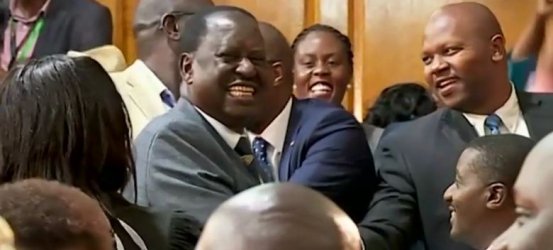
It was just one of those days! I was tired, too tired to even change the channel. I mindlessly stared at the screen, almost unaware of what I was seeing, until I heard something and thought, ‘wait a minute, what this person is singing about is worth hearing! I didn’t pick up the artist’s name or the name of the song, but basically what he was singing about was the economic state of the electorate vis-a-vis that of the elected.
The song was calling the electorate to be conscious of their individual economic state and channel their energy to changing it as opposed to grouping themselves in an attempt to empower an already economically pudgy political group.